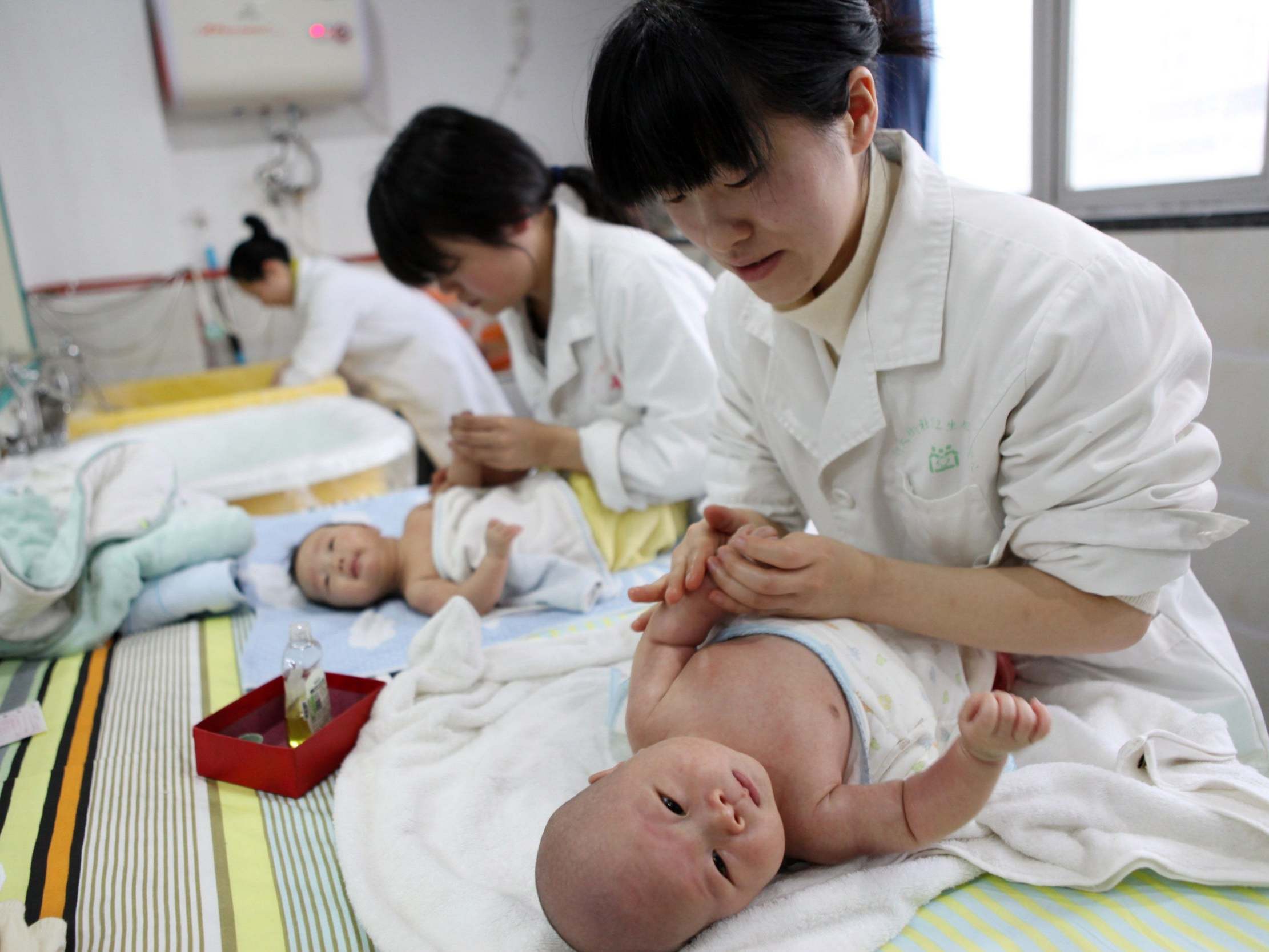China’s birth rate falls to lowest in communist era
Despite abandoning one-child policy Beijing has seen little success in reversing decline

Your support helps us to tell the story
From reproductive rights to climate change to Big Tech, The Independent is on the ground when the story is developing. Whether it's investigating the financials of Elon Musk's pro-Trump PAC or producing our latest documentary, 'The A Word', which shines a light on the American women fighting for reproductive rights, we know how important it is to parse out the facts from the messaging.
At such a critical moment in US history, we need reporters on the ground. Your donation allows us to keep sending journalists to speak to both sides of the story.
The Independent is trusted by Americans across the entire political spectrum. And unlike many other quality news outlets, we choose not to lock Americans out of our reporting and analysis with paywalls. We believe quality journalism should be available to everyone, paid for by those who can afford it.
Your support makes all the difference.China’s birth rate has fallen to its lowest since the founding of the communist People’s Republic 70 years ago.
Last year there were 14.6 million births, a drop of 580,000 from the year before, according to a report from the National Bureau of Statistics released on Friday.
The birth rate of 10.48 per 1,000 people marked the third consecutive year to see a decline in the overall number of births.
Despite abandoning its long-standing one-child policy in 2016, China has seen little success in reversing its declining birth rate.
The policy allowing couples to have a second child has been met with little enthusiasm amid a lack of incentives and rising costs for housing, food, health care and education.
China’s population reached 1.4 billion by the end of 2019, an overall gain of 4.67 million people, the bureau said.
However, the country’s working age population, those between 16 and 59 years old, declined by 890,000.
Meanwhile the number of people aged 60 or older grew by 4.39 million, making up 18.1 per cent of the total population.
In January last year, a Chinese government-affiliated think tank warned the population of the world’s second-biggest economy could begin shrinking as soon as 2027.
Join our commenting forum
Join thought-provoking conversations, follow other Independent readers and see their replies
Comments